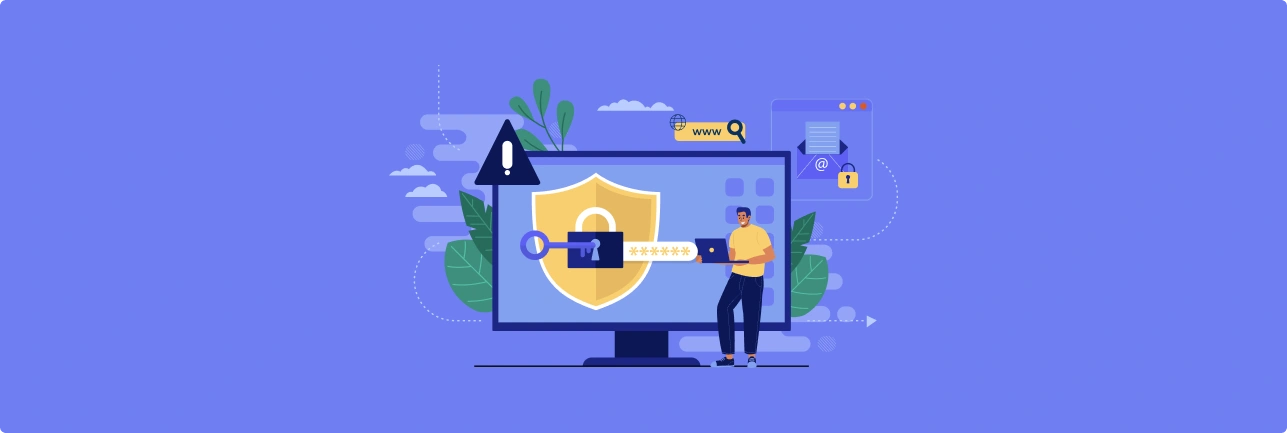When SaaS apps are kept beside others, you can feel why it’s special but sometimes you get confused whether adopting SaaS is the right step for your business. Let me tell you that in recent years SaaS platforms have revolutionized the way businesses operate. SaaS application development stands out as an exceptionally profitable investment niche in today’s market due to its exceptional cost-effectiveness, minimized upfront expenditures, and decreased support overheads. This is just the tip of the iceberg and there is a lot more to know about SaaS.
So, let’s understand why a SaaS App Development Company encourages their clients to pursue SaaS applications.
Why are SaaS applications Considered so Special?
1. Scalability
One of the notable advantages of SaaS applications lies in their ability to flexibly accommodate growing user bases and fluctuating workloads. SaaS solutions can effortlessly adjust their capacity based on demand, ensuring optimal performance even during periods of increased usage.
2. Cost-Efficiency
SaaS removes the necessity for businesses to make expensive investments in infrastructure. By outsourcing tasks such as hardware provisioning, software updates, and infrastructure maintenance to SaaS providers, businesses can significantly reduce both initial investments and ongoing expenses, allowing for more efficient resource allocation.
3. Rapid Development
SaaS development simplifies the development process by allowing developers to focus solely on enhancing software functionality without the burden of infrastructure management. This streamlined approach enables quicker development cycles, facilitating the rapid implementation of new features and updates to keep pace with market demands.
4. Continuous Upgrades
SaaS applications offer seamless updates, ensuring that users have access to the latest features without the need for manual installations. By adopting a continuous development process, SaaS providers can effortlessly deliver enhancements, providing users with a consistently improved experience over time.
5. Enhanced User Experience
Cloud-based SaaS applications offer exceptional usability and accessibility from any internet-connected device, promoting collaboration and remote work. By prioritizing user experience, SaaS solutions enable businesses to operate more efficiently in today’s dynamic work environment.
6. Stable Revenue Model
Operating on a subscription basis, SaaS applications provide a predictable revenue stream, offering stability and facilitating better financial planning for businesses. This reliable revenue model allows businesses to focus on sustainable growth and long-term prosperity.
7. Data Insights
SaaS solutions capture valuable usage data, providing businesses with insights into customer behavior and key metrics. By leveraging analytics, businesses can make informed decisions, prioritize improvements, and identify opportunities to enhance the value proposition of their application.
8. Data Security
SaaS applications prioritize data security by implementing robust backup and recovery measures, as well as employing encryption protocols, secure data centers, and regular security audits. These measures help safeguard customer data against potential threats and ensure compliance with data protection regulations.
9. Compatibility
SaaS applications are designed to seamlessly integrate with existing systems through features such as APIs and web services. This ensures compatibility with various platforms and enhances operational efficiency by facilitating data exchange and functionality integration.
Winding Up
SaaS applications have become indispensable tools for businesses, revolutionizing operations with their flexibility, cost-efficiency, and innovation. As the demand for such solutions continues to rise, companies specializing in SaaS app development play a crucial role in unlocking their full potential. By leveraging the expertise of a trusted SaaS App Development Company, businesses can navigate the complexities of the digital landscape with confidence, embracing the transformative power of these applications to fuel growth and success.
FAQs about SaaS Applications:
FAQ 1. How do SaaS applications ensure data security for businesses?
SaaS applications prioritize data security through robust measures such as encryption protocols, secure data centers, regular security audits, and backup and recovery systems. These measures help safeguard customer data against potential threats and ensure compliance with data protection regulations.
FAQ 2. Can SaaS applications integrate with existing systems?
Yes, SaaS applications are designed to seamlessly integrate with existing systems through features such as APIs (Application Programming Interfaces) and web services. This ensures compatibility with various platforms and enhances operational efficiency by facilitating data exchange and functionality integration.
FAQ 3. What are the benefits of SaaS applications for businesses in terms of financial planning?
SaaS applications operate on a subscription basis, providing a predictable revenue stream that offers stability and facilitates better financial planning for businesses. This reliable revenue model allows businesses to focus on sustainable growth and long-term prosperity.
FAQ 4. How do SaaS applications contribute to enhancing user experience?
SaaS applications offer exceptional usability and accessibility from any internet-connected device, promoting collaboration and remote work. By prioritizing user experience, SaaS solutions enable businesses to operate more efficiently in today’s dynamic work environment.
FAQ 5. What advantages do SaaS applications offer in terms of scalability?
One of the notable advantages of SaaS applications lies in their ability to flexibly accommodate growing user bases and fluctuating workloads. SaaS solutions can effortlessly adjust their capacity based on demand, ensuring optimal performance even during periods of increased usage.







